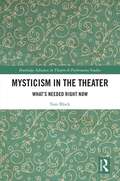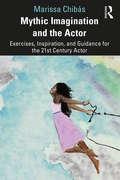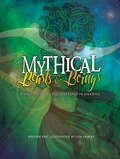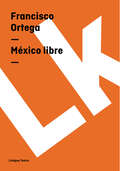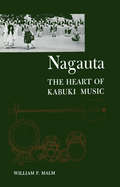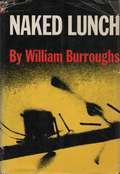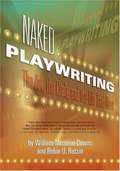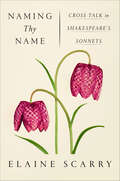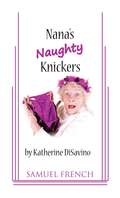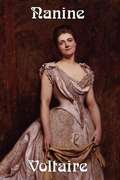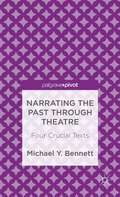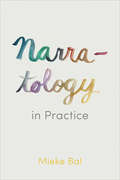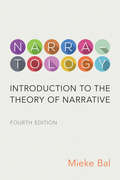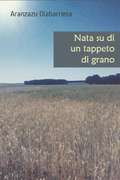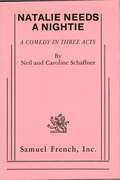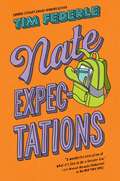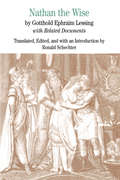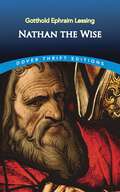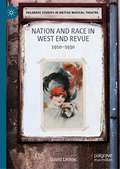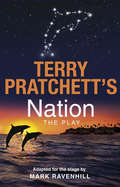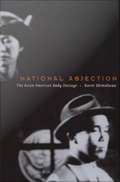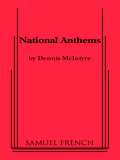- Table View
- List View
Mysticism in the Theater: What’s Needed Right Now (Routledge Advances in Theatre & Performance Studies)
by Tom BlockMysticism in the Theater introduces theater makers to the power and possibility of using historical mystical ideas to influence all aspects of a production. Historical mysticism represents ideas developed by recognized spiritual thinkers in all religions and time periods: individuals who stilled their ego, and perceived the unity of all, hidden within the apparent multiplicity of existence. This unique manner of spiritual inlay allows theatrical presentations to find the height of artistic expression: art at the intersection of our historical moment and the eternal. This study introduces theater makers to the history of mystical inspiration within performance work and develops strategies for inserting mystical ideas into their productions. The book ties this model into theatre’s history, as mystical ideas and quotes have been inserted into productions from Greek theatre through Shakespeare and into the present day. This book explores how teachings and ideas of specific historical mystical thinkers might influence all aspects of contemporary theatrical productions including writing, directing, acting, stagecraft/set design, lighting design, costume design, sound design, and choreography.
Mythic Imagination and the Actor: Exercises, Inspiration, and Guidance for the 21st Century Actor
by Marissa ChibásIn Mythic Imagination and the Actor, Marissa Chibás draws on over three decades of experience as a Latinx actor, writer, filmmaker, and teacher to offer an approach to acting that embraces collective imagination, archetypal work, and the mythic. The book begins with a comparative analysis between method acting and mythic acting, encouraging actors to push past the limits of singular life experience and move to a realm where imagination and metaphor thrive. In the context of mythic acting, the book explores awareness work, solo performance creation, the power of archetypes, character building exercises, creating a body/text connection, and how to be the detective of your own process. Through this inclusive guide for a new age of diverse performers traversing gender, ability, culture, and race, readers are able to move beyond their limits to a deep engagement with the infinite possibilities of rich imagination. The final chapter empowers and motivates artists to live healthfully within the practice and create a personal artistic vision plan. Written for actors and students of acting, American Drama, and film and theatre studies, Mythic Imagination and the Actor provides practical exercises and prompts to unlock and interpret an actor’s deepest creative sources.
Mythic Imagination and the Actor: Exercises, Inspiration, and Guidance for the 21st Century Actor
by Marissa ChibásIn Mythic Imagination and the Actor, Marissa Chibás draws on over three decades of experience as a Latinx actor, writer, filmmaker, and teacher to offer an approach to acting that embraces collective imagination, archetypal work, and the mythic. The book begins with a comparative analysis between method acting and mythic acting, encouraging actors to push past the limits of singular life experience and move to a realm where imagination and metaphor thrive. In the context of mythic acting, the book explores awareness work, solo performance creation, the power of archetypes, character building exercises, creating a body/text connection, and how to be the detective of your own process. Through this inclusive guide for a new age of diverse performers traversing gender, ability, culture, and race, readers are able to move beyond their limits to a deep engagement with the infinite possibilities of rich imagination. The final chapter empowers and motivates artists to live healthfully within the practice and create a personal artistic vision plan.Written for actors and students of acting, American Drama, and film and theatre studies, Mythic Imagination and the Actor provides practical exercises and prompts to unlock and interpret an actor’s deepest creative sources.
Mythical Beasts & Beings: A Visual Guide to the Creatures of Folklore (Xist Children's Books)
by Lisa GravesA Mythical Creatures Guide with Stunning Illustrations Lisa Graves takes on monsters, fairies, gods and dragons in this illustrated guide to mythological creatures. Featuring legends from around the world, this collection provides information for fans of mythology, magic and more in a lovely volume.
México libre
by Francisco Ortega19th century Mexico is marked by the War of Independence, the US invasion the French intervention, and reforms. In this period a pattern emerged between Mexican writers' style and political leanings, as Liberals wrote romantic prose and Conservatives displayed more neoclassical stylings. Ortega belonged to the Liberal Romantics.
Nagauta: The Heart of Kabuki Music
by William P. MalmThis study of Japanese music explore Nagauta or literally "long song"--the delicate and complex music that accompanies kabuki theater--in great detail.The Kabuki theater of Japan has achieved a growing reputation as one of the world's most brilliant achievements in the field of theater. And the number of studies made on the subject in the West has been considerable. Yet, in spite of the fact that so much of the unique brilliance of the kabuki stage depends on the character of its music, the manner in which it is used, and its integral connection with the development of the dramatic impact of the plays, very little has been written on this phase of the genre.Of particular interest are the attempts to explore the various approaches to form music in the vast repertoire of this living art music. The playing techniques of the instruments are explained, and the relations of each instrument's music to the vocal line and to the overall design is shown.The analysis is accompanied by two compete transcription of nagauta in Western notation. These transcriptions are the first complete scores of nagauta ever printed. Additional musical examples, bibliography, discography, and glossary-index add value to the text.
Naked Lunch
by William S. BurroughsDelirious, nonlinear ravings of a junkie in hell. Also includes excerpts from the Boston trial where it was declared not obscene in 1966.
Naked Playwriting: The Art, the Craft, and the Life Laid Bare
by William Missouri Downs Robin U. RussinOffers a playwriting course, from developing a theme through plotting and structuring a play, developing characters, creating dialog, formatting the script, and applying methods that aid the actual writing and rewriting processes. This book also provides guidance on marketing and submitting play scripts for both contests and production.
Nakli Waris: नकली वारिस
by Surender Mohan Pathak"नकली वारिस" सुरेंद्र मोहन पाठक द्वारा लिखा गया एक रोमांचक रहस्य उपन्यास है, जिसमें धोखाधड़ी, पहचान की गुत्थी और षड्यंत्र की जटिल कहानी बुनी गई है। कहानी काठमांडू के एक होटल से शुरू होती है, जहां एक अमीर उद्योगपति राजा शिवप्रताप सिंह की कथित बेटी काजल रहस्यमय परिस्थितियों में पाई जाती है। लेकिन जल्द ही, घटनाओं का ऐसा चक्र शुरू होता है, जिससे उसकी असली पहचान पर सवाल उठने लगते हैं। जब डॉक्टर सूर्यदेव थापा को इस मामले की सच्चाई का अहसास होता है, तो उसे जान से मारने की कोशिश की जाती है। पत्रकार सुनील, जो हमेशा सच्चाई की खोज में रहता है, इस गुत्थी को सुलझाने में जुट जाता है। क्या काजल वास्तव में राजा शिवप्रताप सिंह की बेटी है, या उसके नाम पर कोई और वारिस बनने की साजिश कर रहा है? यह उपन्यास पाठकों को रहस्य और सस्पेंस के जाल में बांधकर अंत तक रोमांचित रखता है।
Naming Thy Name: Cross Talk in Shakespeare's Sonnets
by Elaine ScarryA fascinating case for the identity of Shakespeare’s beautiful young manSHAKESPEARE’S SONNETS ARE indisputably the most enigmatic and enduring love poems written in English. They also may be the most often argued-over sequence of love poems in any language. But what is it that continues to elude us? While it is in part the spellbinding incantations, the hide-and-seek of sound and meaning, it is also the mystery of the noble youth to whom Shakespeare makes a promise—the promise that the youth will survive in the breath and speech and minds of all those who read these sonnets. “How can such promises be fulfilled if no name is actually given?” Elaine Scarry asks. This book is the answer. Naming Thy Name lays bare William Shakespeare’s devotion to a beloved whom he not only names but names repeatedly in the microtexture of the sonnets, in their architecture, and in their deep fabric, immortalizing a love affair. By naming his name, Scarry enables us to hear clearly, for the very first time, a lover’s call and the beloved’s response. Here, over the course of many poems, are two poets in conversation, in love, speaking and listening, writing and writing back. In a true work of alchemy, Scarry, one of America’s most innovative and passionate thinkers, brilliantly synthesizes textual analysis, literary criticism, and historiography in pursuit of the haunting call and recall of Shakespeare’s verse and that of his (now at last named) beloved friend.
Nana's Naughty Knickers
by Katherine DisavinoFarce / 3m, 5f with doubling /Interior Bridget and her Grandmother are about to become roommates. However, what Bridget saw as a unique opportunity to stay with her favorite Nana in New York for the summer quickly turns into an experience she'll never forget. It seems her sweet Grandma is running an illegal boutique from her apartment, selling hand-made naughty knickers to every senior citizen in the five borough area! Will Bridget be able to handle all the excitement? Will her Nana get arrested - or worse! - evicted? Nana's Naughty Knickers will have its world premiere at the Rainbow Dinner Theatre in Pennsylvania, spring 2010. A subsequent production is slated at The Barn Dinner Theatre, in North Carolina during the fall of 2010. "Nana's Naughty Knickers is a slick comedy by a new playwright, Katy DiSavino...the dialog is crisp and funny, and the action fast-paced...[this] Senior Citizen's sexy sideline will have you in stitches!" - Lancaster Journal
Nandhikkalambagam
by S. Arunachala ThesigarNandi Kalambagam is one the greatest and most versatile of the Kalambagams, but unfortunately it serves as an elegy also on Nandi Varman, a mighty Pallava king and hero of the poetry.
Nanine
by Voltaire"This Comedy is called in the French Nanine, ou le Préjugé Vaincu (Nanine, or Prejudice Overcome). It is written, as we are told in the title-page, in verses of ten syllables. The absurdity of comedies in rhyme I have already remarked. The original begins thus: Il faut parler, il faut, Monsieur le Comte, Vous expliquer nettement sur mon Compte. The reader cannot but observe, what villainous rhymes Comte and Compte are, and perhaps will more readily forgive my reducing this comedy into plain prose. It was produced in 1749."-Voltaire Wilder Publications is a green publisher. All of our books are printed to order. This reduces waste and helps us keep prices low while greatly reducing our impact on the environment.
Narrating the Past through Theatre
by Michael Y. BennettThis cutting-edge title explores how narrating the past both conflicts and creates an interesting relationship with drama's 'continuing present' that arcs towards an unpredictable future. Theatre both brings the past alive and also fixes it, but through the performance process, allowing the past to be molded for future (not-yet-existent) audiences.
Narratology in Practice
by Mieke BalNarratology in Practice opens up the well-known theory of narrative to various disciplines in the humanities and social sciences. Written as a companion to Mieke Bal’s international classic Narratology: Introduction to the Theory of Narrative, in which the examples focus almost exclusively on literary studies, this new book offers more elaborate analyses of visual media, especially visual art and film. Read independently or in parallel with its companion, Narratology in Practice enables readers to use the suggested concepts as tools to assist them in practising narrative analysis.
Narratology: Introduction to the Theory of Narrative, Fourth Edition
by Mieke BalSince its first publication in English in 1985, Mieke Bal's Narratology has become an international classic and the comprehensive introduction to the theory of narrative texts, both literary and non-literary. Providing insights into how readers interpret narrative text, the fourth edition of Narratology is a guide for students and scholars seeking to analyze narratives of any language, period, and region with clear, systematic and reliable concepts. With the addition of in-depth analysis of literary nuances and methods, award-wining cultural theorist Mieke Bal continues to present narrative concepts with clarity. Bal uses a systematic framework to better explain how narratives function, are formed, and eventually interpreted by the reader, while presenting a comprehensive study of the surface perception of language, the perceived narrative world, point of view, and characterization.
Nata su di un tappeto di grano: .
by Aranzazu OlabarrietaQuesta storia narra della vita di una donna negli anni 20 in una impoverita Castiglia. Nonostante fosse nata al di fuori del matrimonio, ebbe un’infanzia felice estranea dalle chiacchiere, protetta da sua madre e un’adolescenza segnata da un amore proibito, vittima di un atto crudele che la segnerà per sempre. Conosce di nuovo l’amore e la vita torna a darle un duro colpo. Trascinandosi come molti altri nella miseria, si unisce all’esodo dalle campagne, emigrando ai Paesi Baschi con la sua famiglia dove tenta di ricominciare da capo, ma quando tutto sembra andare bene, le tocca lottare contro qualcosa più forte, il suo destino.
Natalie Needs a Nightie
by Neil SchaffnerFarce / 4m, 3f / Interior / A guaranteed laugh riot! In an apartment house Tommy Briggs has his mail, calls, and visitors frequently misdirected to a girl's apartment whose pen name is also Tommy Briggs. Tommy's boss expects his young executives to be married so he tries to have someone pose as his wife. The trouble is he ends up with too many "wives." Then as he got a big bonus on the strength of a new "baby" he has to produce one for the boss. Again, there's too many, including one not of his race. Adding to this confusion is a compulsive chambermaid who snitches drinks and takes all clothing found on a particular chair to the cleaners including many vital articles such as the boss's garments placed there while he is in the shower.
Nate Expectations: Better Nate Than Ever; Five, Six, Seven, Nate!; Nate Expectations (Nate)
by Tim Federle“The Nate series by Tim Federle is a wonderful evocation of what it’s like to be a theater kid. Highly recommended.” —Lin-Manuel Miranda, star and creator of the musical, Hamilton Third time’s a charm! Nate Foster returns home to Jankburg, Pennsylvania, to face his biggest challenge yet—high school—in this final novel in the Lambda Literary Award–winning Nate trilogy, which The New York Times calls “inspired and inspiring.”When the news hits that E.T.: The Musical wasn’t nominated for a single Tony Award—not one!—the show closes, leaving Nate both out of luck and out of a job. And while Nate’s cast mates are eager to move on (the boy he understudies already landed a role on a TV show!), Nate knows it’s back to square one, also known as Jankburg, Pennsylvania. Where horror (read: high school) awaits. Desperate to turn his life from flop to fabulous, Nate takes on a huge freshman English project with his BFF, Libby: he’s going to make a musical out of Charles Dickens’s Great Expectations. (What could possibly go…right?) But when Nate’s New York crush ghosts him, and his grades start to slip, he finds the only thing harder than being on Broadway is being a freshman — especially when you’ve got a secret you’re desperate to sing out about. This magical conclusion to Tim Federle’s beloved Nate series is a love letter to theater kids young and not-so-young—and for anyone who ever wondered if they could truly go home again. Especially when doing so means facing everything you thought you’d left behind.
Nathan the Wise
by Ronald SchechterOne of the most frequently performed and widely read comedies of the eighteenth century, Gotthold Ephraim Lessing's Nathan the Wise (1779) combines rich characterization with an engaging plot. Set in Muslim-ruled Jerusalem at the time of the Crusades, it deals with universal themes -- including the nature of God, antisemitism, wealth and poverty, and the conflict between love and duty. Today the play is as timely as ever. This edition, the first English version expressly intended for undergraduates, contains an insightful introduction that discusses the play, Lessing and the Enlightenment, and the situation of Jews in eighteenth-century Europe. Additionally, there are five related historical documents -- each with a context-setting headnote -- illustrations, a chronology, questions for consideration, and a selected bibliography.
Nathan the Wise: A Dramatic Poem (Dover Thrift Editions)
by William Taylor Gotthold Ephraim LessingA Jewish merchant, a Muslim sultan, and a young Templar knight transcend the differences in their faiths in this play's moving plea for religious tolerance and cooperation amongst Christians, Jews, and Muslims. Set in Jerusalem during the Third Crusade, the Enlightenment-era drama explores timeless considerations that range from the nature of God to the conflict between love and duty and the importance of unity amid division and diversity.Nathan the Wise (Nathan der Weise) was published in Germany in 1779, although its performance was forbidden by the church during the lifetime of author Gotthold Ephraim Lessing. The highly influential play had its 1783 premiere in Berlin and has since been translated into many languages and adapted for performances around the world.
Nation and Race in West End Revue: 1910–1930 (Palgrave Studies in British Musical Theatre)
by David LintonLondon West End revue constituted a particular response to mounting social, political, and cultural insecurities over Britain’s status and position at the beginning of the twentieth century. Insecurities regarding Britain’s colonial rule as exemplified in Ireland and elsewhere, were compounded by growing demands for social reform across the country — the call for women’s emancipation, the growth of the labour, and the trade union movements all created a climate of mounting disillusion. Revue correlated the immediacy of this uncertain world, through a fragmented vocabulary of performance placing satire, parody, social commentary, and critique at its core and found popularity in reflecting and responding to the variations of the new lived experiences. Multidisciplinary in its creation and realisation, revue incorporated dance, music, design, theatre, and film appropriating pre-modern theatre forms, techniques, and styles such as burlesque, music hall, pantomime, minstrelsy, and pierrot. Experimenting with narrative and expressions of speech, movement, design, and sound, revue displayed ambivalent representations that reflected social and cultural negotiations of previously essentialised identities in the modern world. Part of a wide and diverse cultural space at the beginning of the twentieth century it was acknowledged both by the intellectual avant-garde and the workers theatre movement not only as a reflexive action, but also as an evolving dynamic multidisciplinary performance model, which was highly influential across British culture. Revue displaced the romanticism of musical comedy by combining a satirical listless detachment with a defiant sophistication that articulated a fading British hegemonic sensibility, a cultural expression of a fragile and changing social and political order.
Nation: The Play
by Terry Pratchett Mark RavenhillFollowing the National Theatre's success with plays based on novels by well-loved children's writers like Philip Pulman (His Dark Materials), Jamila Gavin (Coram Boy) and Michael Morpurgo (War Horse), the National now stages Mark Ravenhill's exhilarating adaptation of Terry Pratchett's witty and challenging adventure story in a major Christmas production for 2009.A parallel world, 1860. Two teenagers thrown together by a tsunami that has destroyed Mau's village and left Daphne shipwrecked on his South Pacific island, thousands of miles from home. One wears next to nothing, the other a long white dress; neither speaks the other's language; somehow they must learn to survive. As starving refugees gather, Daphne delivers a baby, milks a pig, brews beer and does battle with a mutineer. Mau fights cannibal Raiders, discovers the world is round and questions the reality of his tribe's fiercely patriarchal gods. Together they come of age, overseen by a foul-mouthed parrot, as they discard old doctrine to forge a new Nation.
National Abjection: The Asian American Body Onstage
by Karen ShimakawaNational Abjection explores the vexed relationship between "Asian Americanness" and "Americanness" through a focus on drama and performance art. Karen Shimakawa argues that the forms of Asian Americanness that appear in U. S. culture are a function of national abjection--a process that demands that Americanness be defined by the exclusion of Asian Americans, who are either cast as symbolic foreigners incapable of integration or Americanization or distorted into an "honorary" whiteness. She examines how Asian Americans become culturally visible on and off stage, revealing the ways Asian American theater companies and artists respond to the cultural implications of this abjection. Shimakawa looks at the origins of Asian American theater, particularly through the memories of some of its pioneers. Her examination of the emergence of Asian American theater companies illuminates their strategies for countering the stereotypes of Asian Americans and the lack of visibility of Asian American performers within the theater world. She shows how some plays--Wakako Yamauchi's 12-1-A, Frank Chin's Chickencoop Chinaman, and The Year of the Dragon--have both directly and indirectly addressed the displacement of Asian Americans. She analyzes works attempting to negate the process of abjection--such as the 1988 Broadway production of M. Butterfly as well as Miss Saigon, a mainstream production that enacted the process of cultural displacement both onstage and off. Finally, Shimakawa considers Asian Americanness in the context of globalization by meditating on the work of Ping Chong, particularly his East-West Quartet.
National Anthems
by Dennis McintyreFull Length, Comic drama \ 2 m, 1 f \ Interior \ Long Wharf Theatre premiered this hard hitting parable about American materialism by the author of Modigliani, Split Second and Established Price. In their sumptuous home, the Reeds have hosted a party for their neighbors. It is late and everyone has gone when a final guest arrives, a fireman who is not of the Reeds' socioeconomic position. Nonetheless, the Reeds are gracious until the guest's desperation for material comforts, status and pride surfaces and things get nasty. \ "Profane, smart and disturbingly funny . . . with an acuteness that's as up to date as this morning's newspaper headlines." Rochester Times Union
